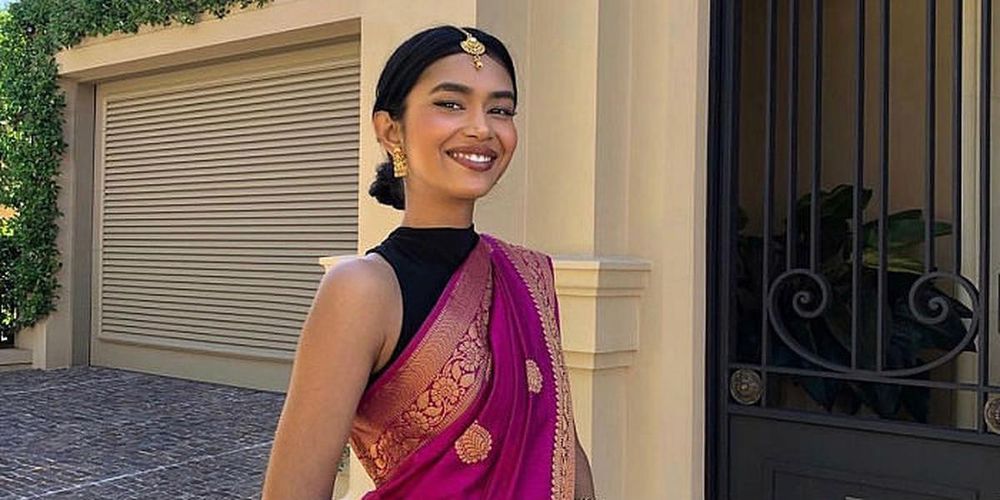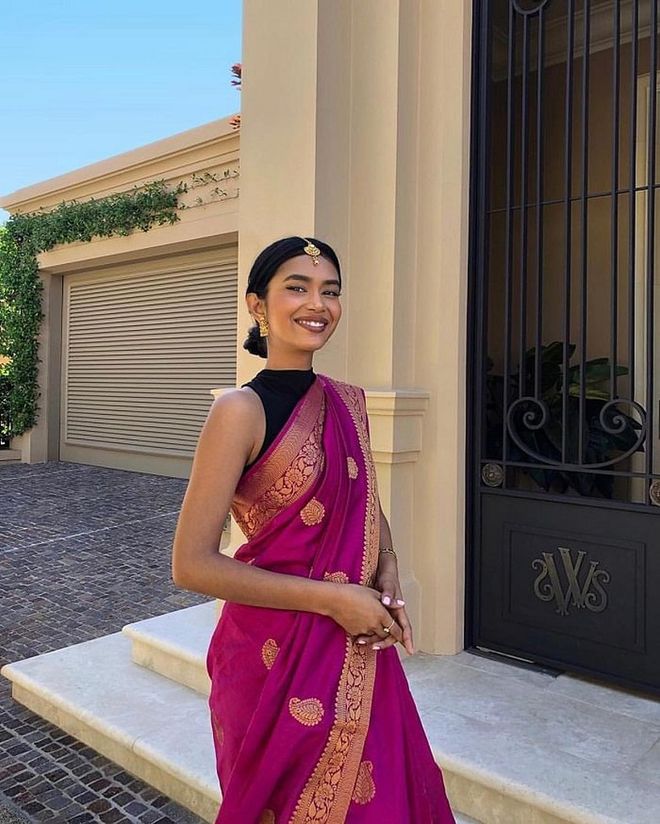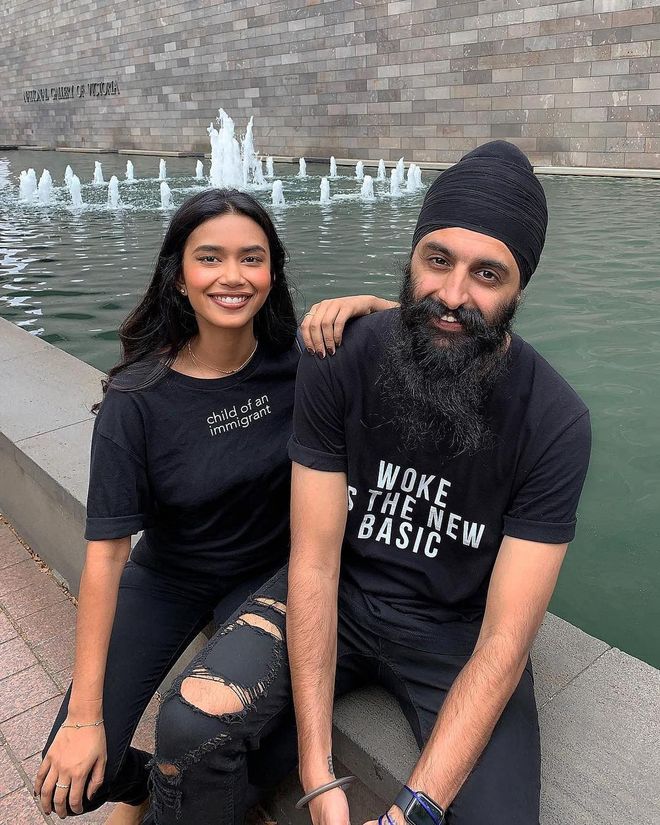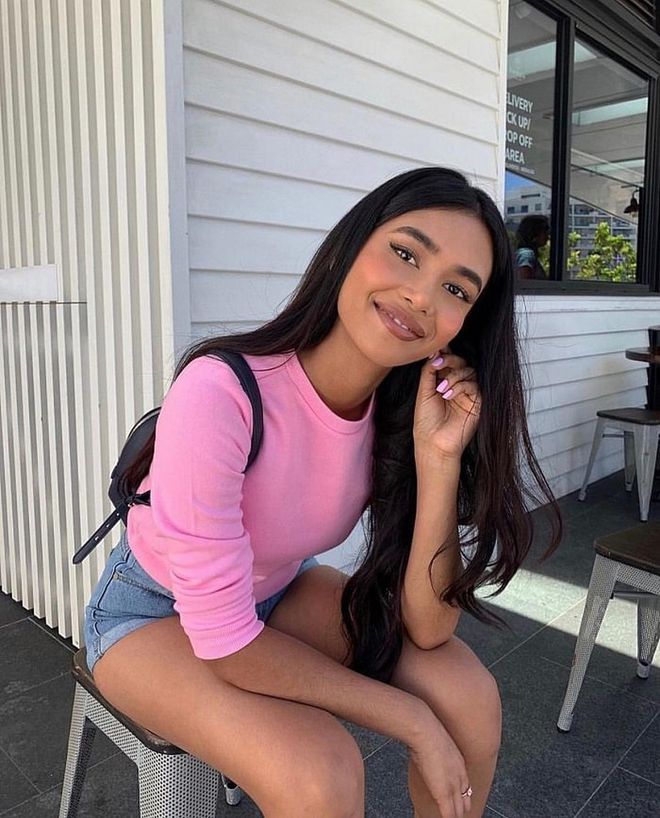Mishti Rahman On The Power Of Self-Acceptance And Instagram
The influencer shares her story exclusively with BAZAAR


Photo: Courtesy
Mishti Rahman
Born in Adelaide, Australia, to immigrant parents, 26-year-old Bengali-Muslim Mishti Rahman has spent her life trying to straddle two worlds. Now, the social media influencer has found a way to celebrate the parts of her heritage that she values most while still being true to herself.
Caught Between Two Worlds
I played dress up as a young girl, not knowing that I was laying a foundation for a career in fashion, art and design 20 years later. I grew up in Australia, in a Bengali-Muslim household surrounded by a rich tapestry of coloured fabrics, delicious foods, beautiful culture, and rigid outlooks. We had strict rules about how we were to dress in and outside the home and I wasn’t given any input on the matter.
In Sydney, the weather gets up to 40 degrees, and bikini babes are the norm around here; but, for me, that felt as foreign as covering up. I didn’t feel I belonged in either of my two worlds; I didn’t know how to be Bengali and Australian. This came through in the conflicts I had with my parents, whether over the places I wanted to go, or the clothes I wanted to wear. My rebellious side flourished in my teens, as I perfected the art of working around their rules to keep my true self above the surface, and reject my parent’s needs for an obedient daughter. I hid my true self in a backpack and changed when I left the house, almost like a super hero, transforming when no one was looking, but never feeling as powerful. I remember my Muslim friends did the same. We got used to hiding parts of who we were from our families.
Related article: Our Edit Of The Makeup Looks You'll Want To Achieve This Deepavali

Photo: Courtesy
Mishti Rahman
Self-Acceptance and Instagram
Juggling identities was exhausting and no matter how discreet I was, I still felt like I was losing – either in the eyes of those from my culture, or when I looked in the mirror. Being anyone but oneself is draining. I was always cautious of how I behaved and who I felt comfortable revealing myself to. Fortunately, I found this weird and wonderful outlet called Instagram, where I could share who I really felt like on the inside with a world that lay outside the judgemental bubble I was raised in. This wasn’t simply images and videos that were counter to the way I was raised, it was also an opportunity to celebrate the parts of my heritage that I valued, that may not have been embraced by Australian culture.
Last year, from a Bengali restaurant in Sydney, I uploaded a video eating biryani, the only way I’ve ever eaten it, with my hands. I felt like this was an important step to showing the many worlds I’m a part of, embracing the ways of the old and the new, only keeping that which feel true to who I was. The video received mixed reactions, but it was refreshing. Despite the myriad of opinions, I felt like I had an online family who challenged me, supported me and most importantly accepted me. Putting myself out there made me feel less isolated and much more liberated. My stories of struggle are not unique, and there are countless others going through the same thing. Making that first step to put my true self out there did a number on the way I felt about myself. I wore all my cultures proudly, and from that I was proud of myself.
Related article: Art Against The Odds: Keeping Classical Indian Dance Alive In Singapore

Photo: Courtesy
Mishti Rahman
Empowerment and Celebration
Looking back, I found that courage from taking a step towards something that scared me. I put myself out there, and absorbed the consequences. These last few years have involved discovering and embracing my own unique identity, That journey has given me so many opportunities to build a movement that sheds light on the idea that we all, despite the contrasts of our cultures, can find and merge the beauty from them, to be something wonderful. I feel that as a Bengali woman, my heritage is beyond the expectations of others.
This realization is how women of such underrepresented communities can and will achieve so much. My purpose in life is to empower others to realize that they don’t need to change themselves to fit in, rather they only need discover and amplify who they really are, no matter who they are, where they were born, or the cultures that surround them. There is nothing more beautiful in life than being able to be yourself in all its entirety with all parts of your identity. Who we are isn’t something to be tolerated, it’s something to be celebrated.
Related article: Model Toni Garrn On Her Foundation, Female Empowerment And Her Charity Flea Market